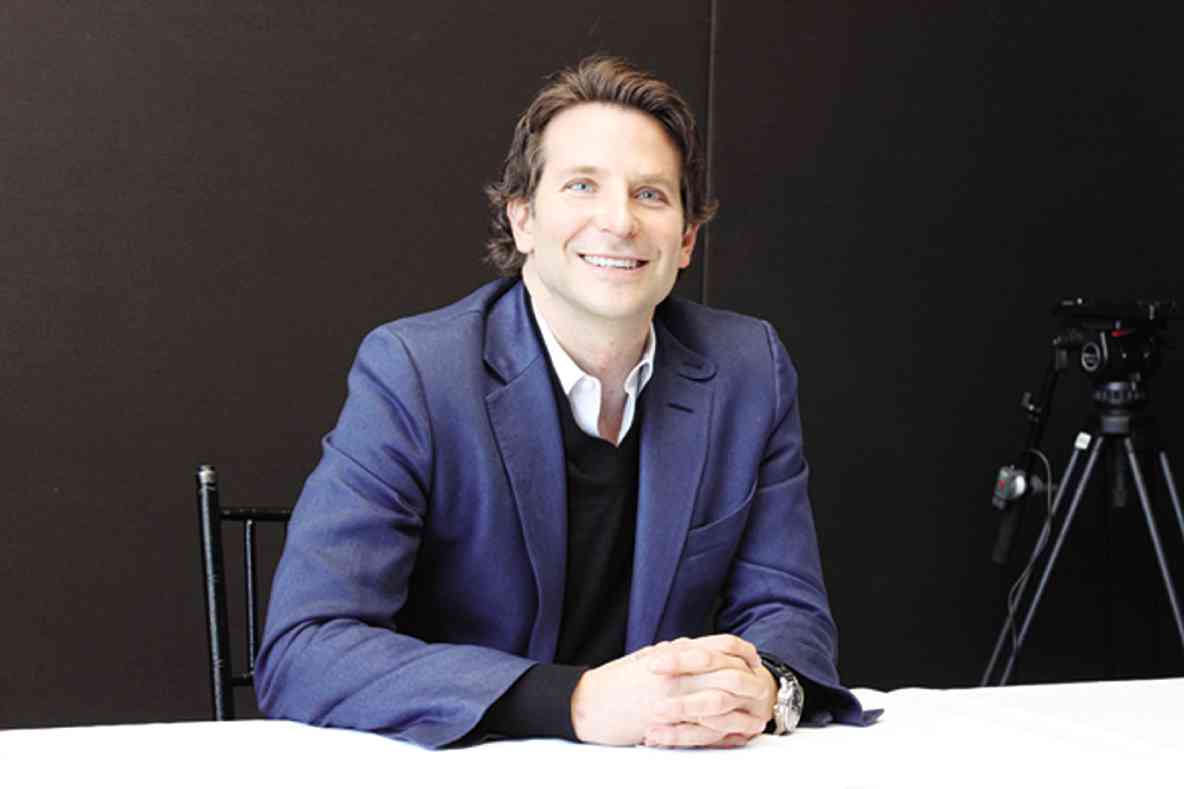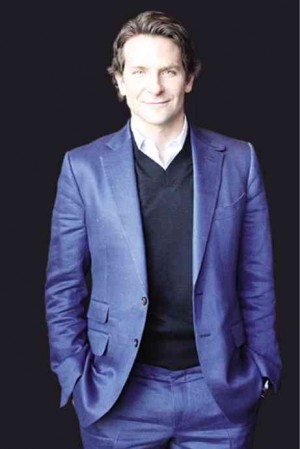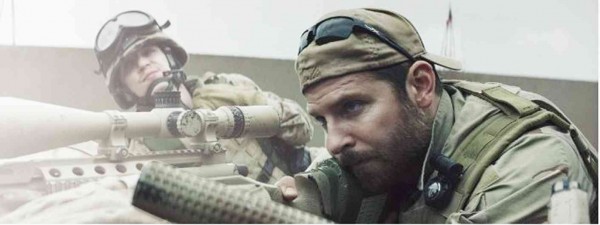Bradley Cooper addresses ‘American Sniper’ controversy

“I WOULDN’T even necessarily classify this as a war movie,” says the lead star-producer. RUBEN V. NEPALES
LOS ANGELES —“If that’s what you take from it,” Bradley Cooper calmly replied when asked about his controversial movie, “American Sniper,” which some see as showing the “insanity of Americans in Iraq.” While director Clint Eastwood’s film adaptation of sniper Chris Kyle’s autobiography has become a huge box-office hit, its critics denounce it as war propaganda. The movie is stirring up debates on whether it glorifies a hero or a killer.
“For me, if a vet or any soldier, in any war, from any country, can watch that movie and somehow relate to it and say, ‘Yeah, that’s almost the schizophrenic nature of having to go home’… that would be a win,” said Bradley, who has shed the 40 pounds of muscle he gained and shaved the beard he grew to play the late Navy SEAL. The actor was clean-shaven and lighter for his role in “The Elephant Man” on Broadway.
Bradley earned an Oscar best actor nomination for his portrayal of Chris, based on the latter’s “American Sniper: The Autobiography of the Most Lethal Sniper in US Military History.” The movie bagged five other Academy nods, including best picture.
Clint’s latest film alternates between scenes of Chris in Iraq, where he killed an estimated 255 people (160 confirmed by the Department of Defense) and at home with his wife, Taya (Sienna Miller) and two kids. It depicts how the aftereffects of war impacted Chris, who did four tours in the Iraq War, and his family. In 2013, as he was finally settling into a normal life in Texas, Chris and his friend were shot and killed by a suspected shooter, who is also a veteran.

BRADLEY clean-shaven and lighter, is playing the titular “Elephant Man” on Broadway. RUBEN V. NEPALES
Soldiers’ struggles
Article continues after this advertisementBradley continued about what he believes “American Sniper” portrays: “…war life and how, all of a sudden, it’s Tour One, Tour Two, then back home, he’s banging on the window, which baby is that, his daughter—the struggles that soldiers have to go through in order to maintain a family, for example, and the toll it takes that was something that I hadn’t seen done before in this way.
Article continues after this advertisement“If at all a vet who somehow feels that the outside world can relate to [the movie]… if somebody who doesn’t really have any idea of what the plight [of veterans] might be, could see this movie and maybe think twice next time he’s in an airport and a vet walks by… it’s very simple but that’s the goal. That’s what Clint and I were always clear about.”
Bradley said he was aware that there are people who view the US decision to invade Iraq as one of the worst foreign policy decisions in recent American history.
“[But] it didn’t influence my approach,” the actor remarked. “Chris was interviewed about that. You can actually go and see it online. He talked about how that was not a decision for him to make. He signed up to be a soldier. He saw it very black-and-white that way. So for me, it was not an issue at all because I am going off this other source. That’s how I dealt with that.”
Preaching patriotism?
Asked whether he thinks the film is part of a Hollywood movement to preach patriotism, Bradley answered, “If you see this thing as that, then that’s for you to take from it. I could just speak personally—I never really thought anywhere along those lines. I wouldn’t even necessarily classify this as a war movie at all. It’s your right to think whatever you want from it. But I definitely don’t feel like we live in an era where the world is just too small for people not to realize what is propaganda and what is not.
“Art is a subjective thing. So it’s really there to be interpreted. I just want to tell the story and then it’s up to the viewer to glean whatever he wants from it.”
In Bradley’s perspective, “American Sniper” is more in line with a beloved American film genre. “I loved the idea of telling the story as a Western. I always saw it as a Western in a lot of ways. There are like two gunslingers. It’s a nice way to encompass this story, which is really about what soldiers go through in life and war. But to tell it in a very compelling way, through a Western (genre) idea. Then he was murdered and everything changed.”
The phone call
Bradley recalled talking to Chris: “I talked to him one time. We started negotiating with him in February of 2011 when we brought the project to Warner Brothers. It took a while for him to decide—going back and forth. He had trepidations about the whole idea anyway.
“So I said, ‘Let me call and talk to him.’ He hears my voice and I say, ‘I understand your fears about Hollywood and all that kind of thing. We don’t know each other—but this is the first thing that I am ever going to fully produce. You have to know that I am going to do right by you. I want you to participate and I am going to go there and spend time with you.’
“Even at that time, in the back of my mind, I wasn’t quite clear that I would actually wind up playing Chris, just because I thought I was so different from him. I am from Philadelphia; he’s from Texas. I am buck eighty-five (185 pounds); he’s 230. I am from a suburban environment for the most part. So I just thought, let me bring it forward but in the end, maybe someone else will play him.
Meeting with Chris’ dad
“Clint and I went to meet Chris’ father (Wayne Kenneth Kyle) in Texas. We spent time with his family, Taya and his children. That was very intense. If you could imagine standing across from a guy whose son was murdered a year prior saying, ‘We’re from Hollywood and we are going to make a movie about your son.’ That’s a crazy, very surreal thing—a huge responsibility.
“But as we spent time together, Wayne started to feel more comfortable. Toward the end, he just said. ‘You don’t look a thing like him (laughs). You are going to have to gain a lot of weight.’ I said, ‘I know, believe me. I am going to try.’ But it worked out.”
Of his director, Clint, Bradley disclosed that he had long tried to land a role in the Hollywood veteran’s movies. “I [had put] myself on tape for Clint Eastwood movies since ‘Flags of Our Fathers.’ Also for ‘Gran Torino’ to play the Irish Catholic cop and for ‘J. Edgar’ to play J. Edgar Hoover’s lover. I felt like I worked with him even though I just sent him tapes. Because he doesn’t audition people [in person], you just have to always put yourself on tape. So I was thrilled to have this opportunity to do this movie with him.”
On turning 40 last month, Bradley commented, “Thank God, the older you get, the more at ease you are with yourself, even though your body is basically decomposing in front of your eyes. Sorry to be so blunt about it but that is the truth. So, I am the happiest I have ever been. Artistically, I couldn’t be more fulfilled. I am just grateful.”
(E-mail the columnist at [email protected]. Follow him at https://twitter.com/nepalesruben.)
